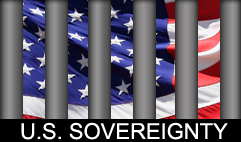Agenda what?

Take a tour through the Agenda 21 section of the United Nations (UN) website, and one might find themselves with an overwhelming feeling of hopelessness- and probably a bad headache.
What is Agenda 21? Maybe the question to ask is, what isn't Agenda 21? Because the more one reads into this sovereignty nightmare, the clearer it becomes that Agenda 21 touches just about every section of Americans' daily lives from early education, private property rights, food, energy, and everything in between.
For those not in the know, Agenda 21 could be one of America's biggest threats to individual freedom under the banner of "sustainable" living. Agenda 21 enters a town in a trojan horse via the ICLEI (Local Government for Sustainability, which was founded in 1990 as the International Council for Local Environmental Initiatives.
Scott Strzelczyk and Richard Rothschild explained it best in a 2009 American Thinker article:
"The United Nations Department of Economic and Social Affairs, Division for Sustainable Development created Agenda 21 as a sustainability agenda which is arguably an amalgamation of socialism and extreme environmentalism brushed with anti-American, anti-capitalist overtones. "
Of course, it is never presented to the citizens as "Agenda 21". Small towns across the U.S. are signing away their citizen's property rights, in the name of "smart growth" and "sustainable living" with promises of bike paths, walkways, and green public space.
When the mask is peeled back, Agenda 21 is a vehicle for anti-free-market, anti-individual-rights, and re-distribution of wealth- worldwide.
This section on "Sustainable Development" from the International Institute for Sustainable Development is very clear on the direction this takes us on:
"And when you think of the world as a system over time, you start to realize that the decisions our grandparents made about how to farm the land continue to affect agricultural practice today; and the economic policies we endorse today will have an impact on urban poverty when our children are adults.
We also understand that quality of life is a system, too. It's good to be physically healthy, but what if you are poor and don't have access to education? It's good to have a secure income, but what if the air in your part of the world is unclean? And it's good to have freedom of religious expression, but what if you can't feed your family?
The concept of sustainable development is rooted in this sort of systems thinking."
And you thought it was all about having new bike paths? Yeah, right.
What is Agenda 21? Maybe the question to ask is, what isn't Agenda 21? Because the more one reads into this sovereignty nightmare, the clearer it becomes that Agenda 21 touches just about every section of Americans' daily lives from early education, private property rights, food, energy, and everything in between.
For those not in the know, Agenda 21 could be one of America's biggest threats to individual freedom under the banner of "sustainable" living. Agenda 21 enters a town in a trojan horse via the ICLEI (Local Government for Sustainability, which was founded in 1990 as the International Council for Local Environmental Initiatives.
Scott Strzelczyk and Richard Rothschild explained it best in a 2009 American Thinker article:
"The United Nations Department of Economic and Social Affairs, Division for Sustainable Development created Agenda 21 as a sustainability agenda which is arguably an amalgamation of socialism and extreme environmentalism brushed with anti-American, anti-capitalist overtones. "
Of course, it is never presented to the citizens as "Agenda 21". Small towns across the U.S. are signing away their citizen's property rights, in the name of "smart growth" and "sustainable living" with promises of bike paths, walkways, and green public space.
When the mask is peeled back, Agenda 21 is a vehicle for anti-free-market, anti-individual-rights, and re-distribution of wealth- worldwide.
This section on "Sustainable Development" from the International Institute for Sustainable Development is very clear on the direction this takes us on:
"And when you think of the world as a system over time, you start to realize that the decisions our grandparents made about how to farm the land continue to affect agricultural practice today; and the economic policies we endorse today will have an impact on urban poverty when our children are adults.
We also understand that quality of life is a system, too. It's good to be physically healthy, but what if you are poor and don't have access to education? It's good to have a secure income, but what if the air in your part of the world is unclean? And it's good to have freedom of religious expression, but what if you can't feed your family?
The concept of sustainable development is rooted in this sort of systems thinking."
And you thought it was all about having new bike paths? Yeah, right.